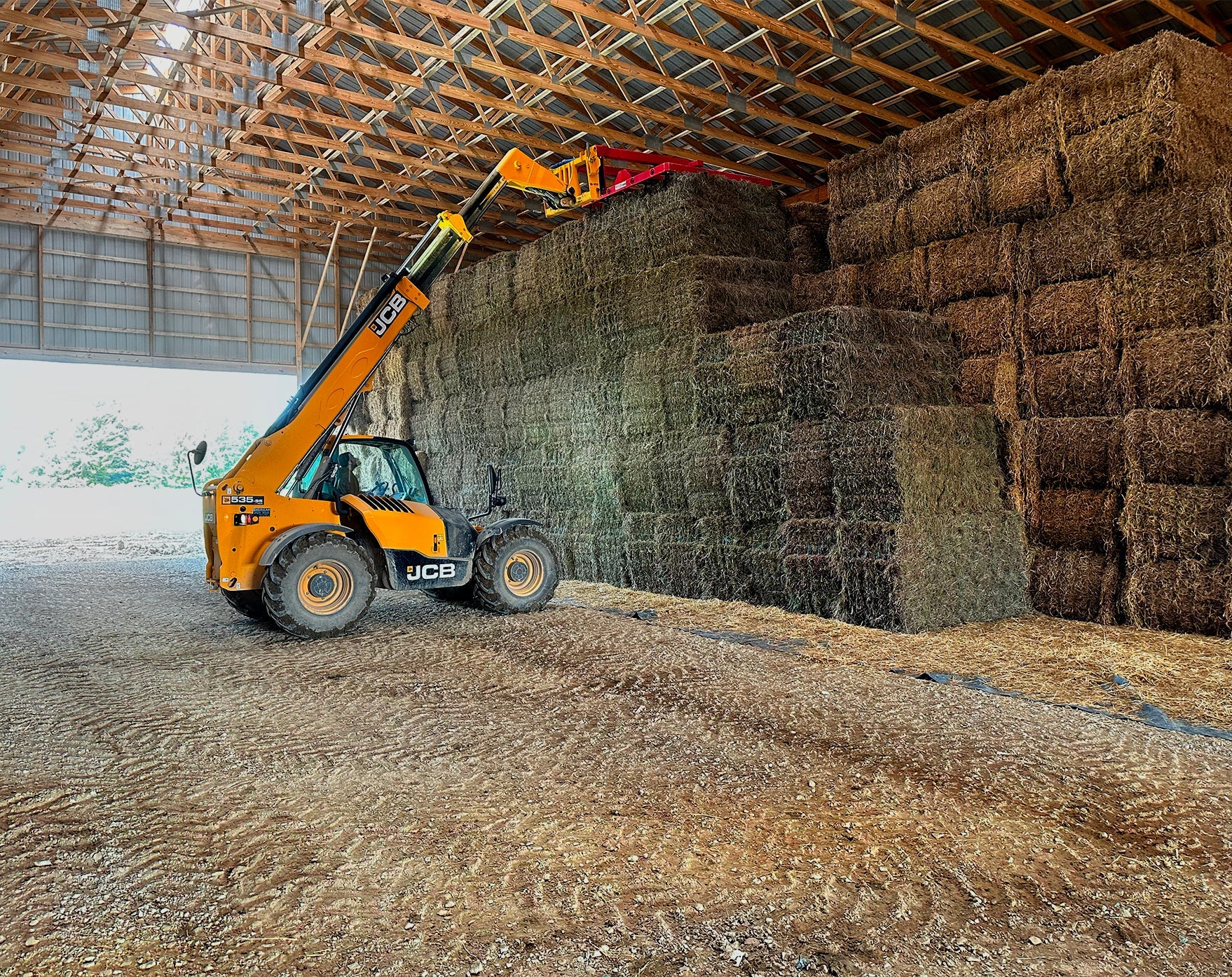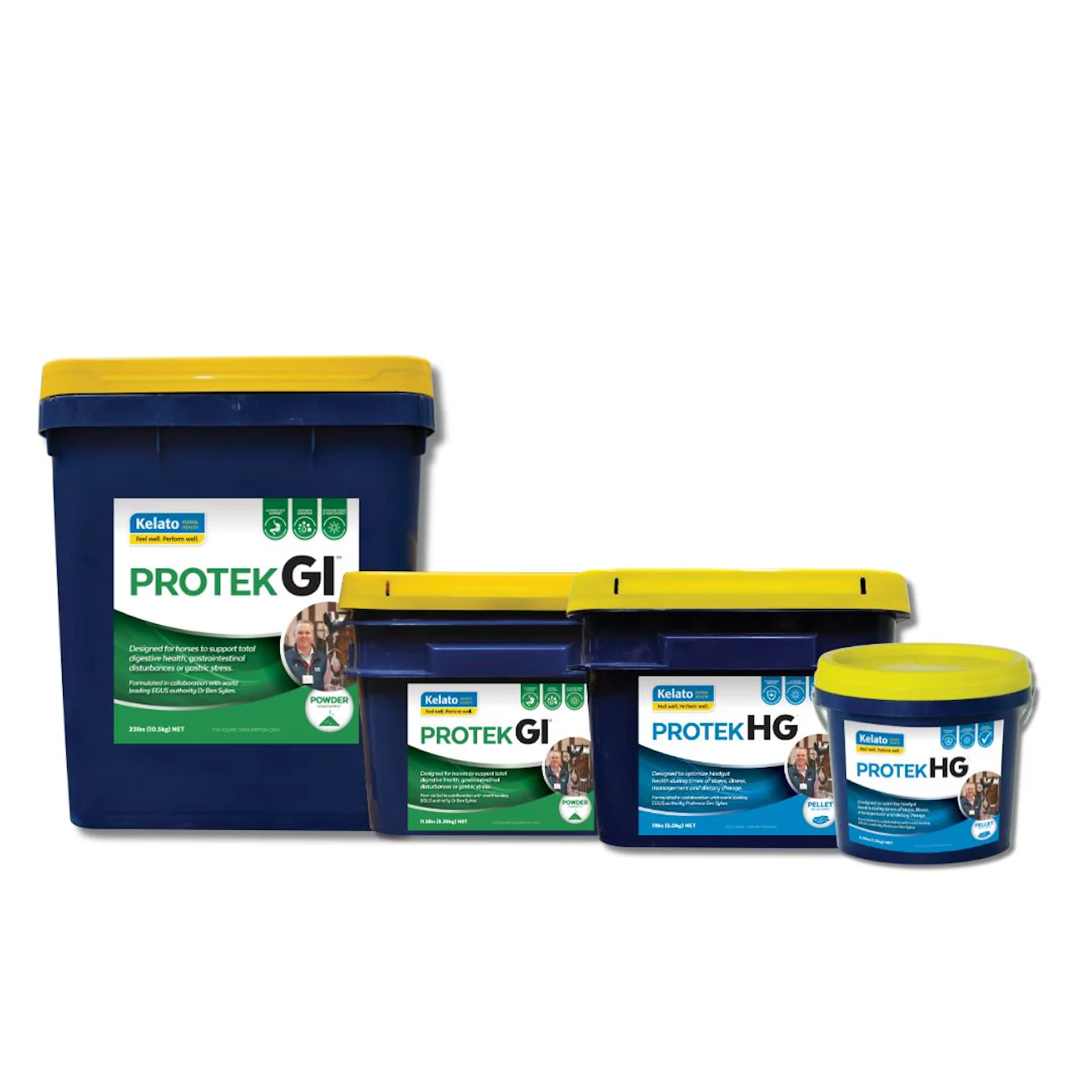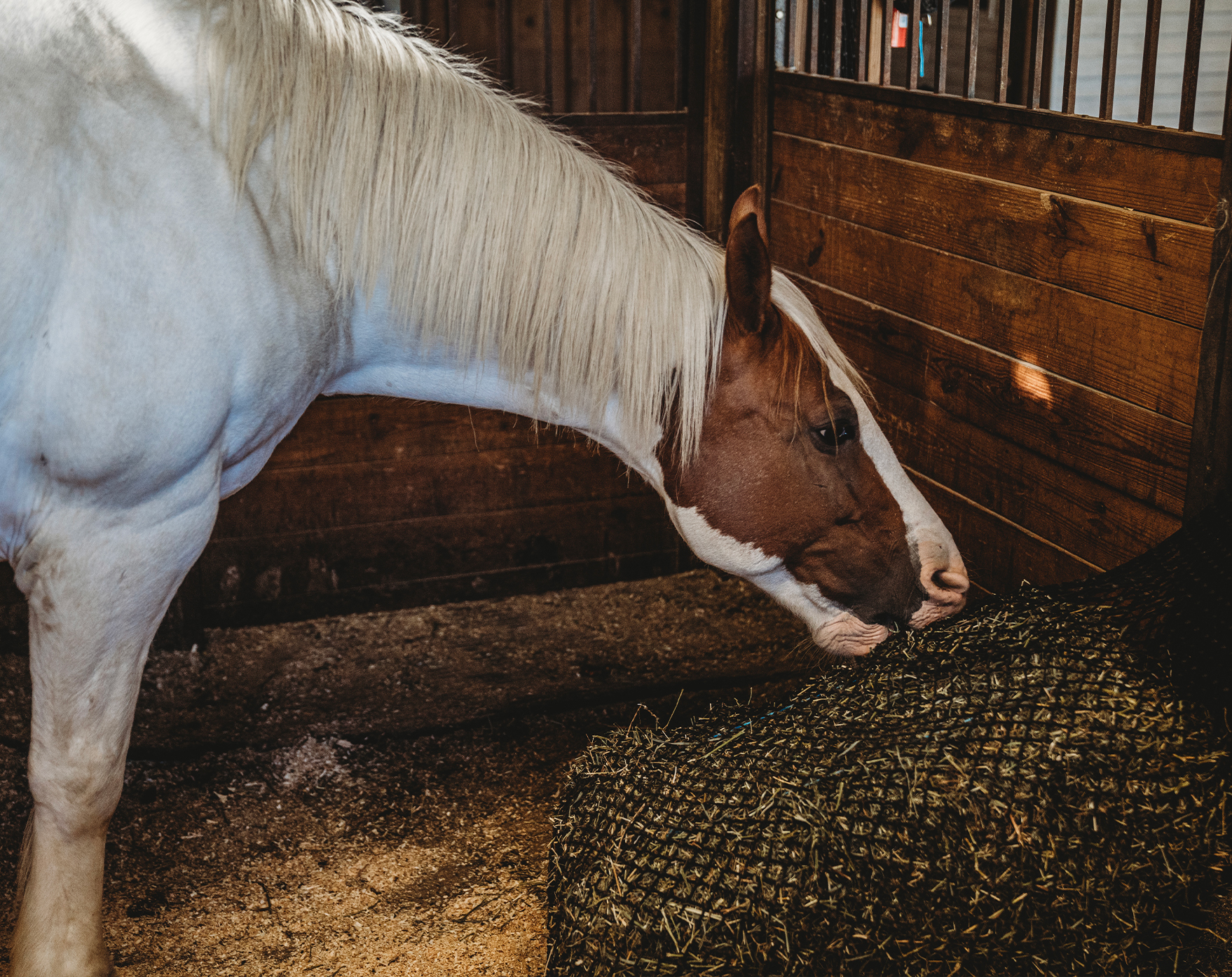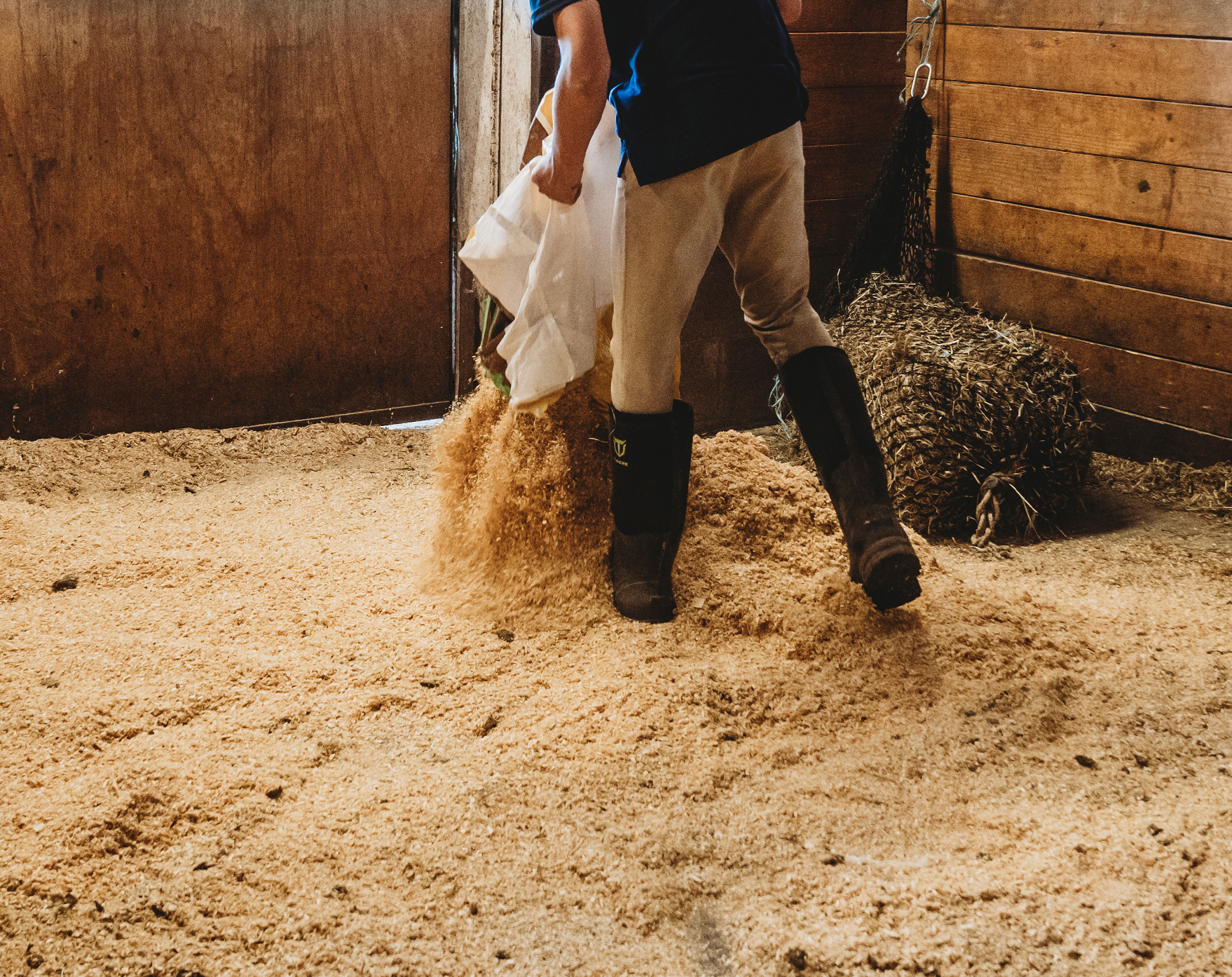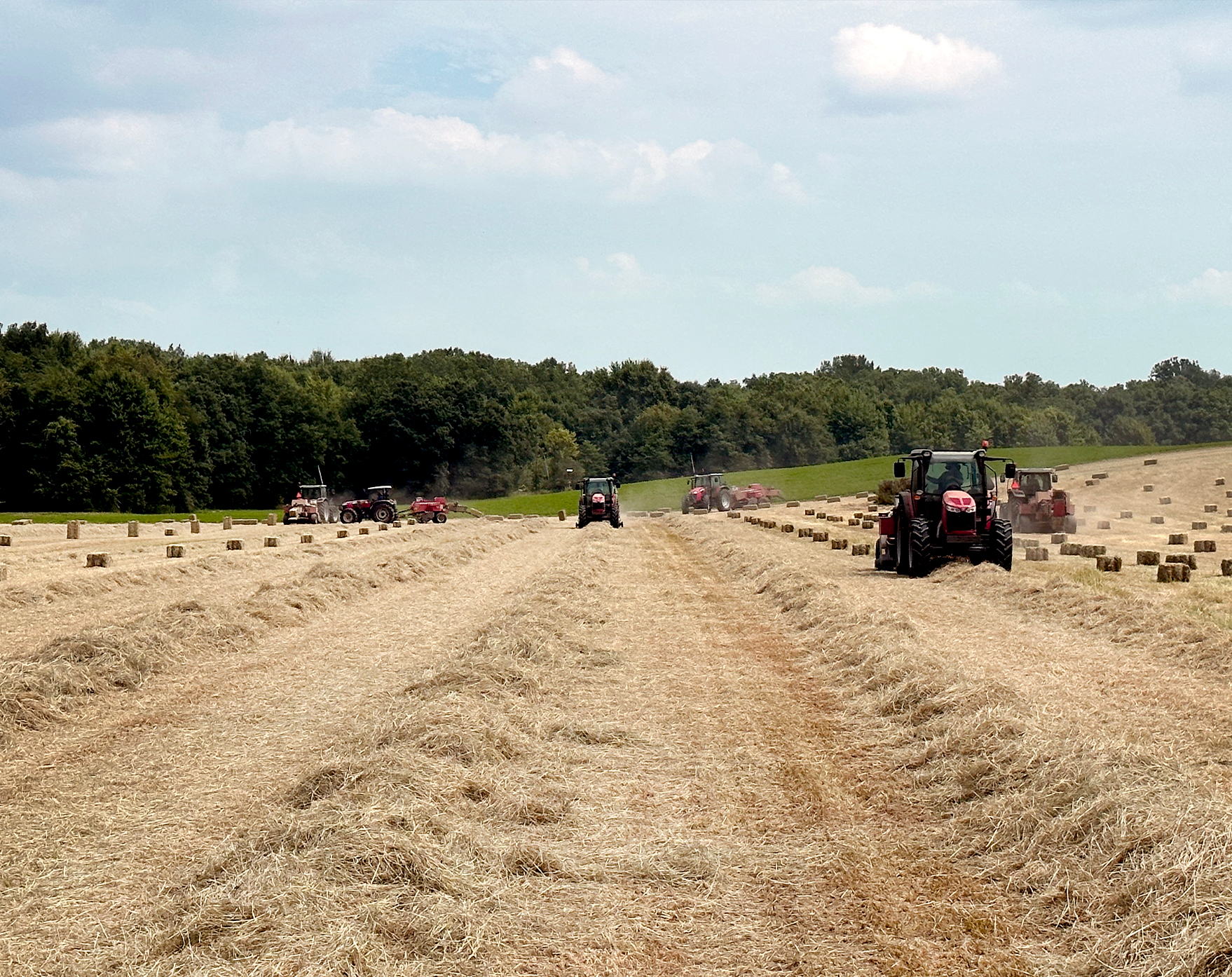Frequently Asked Questions
Check the most frequently asked questions here, if you still need help then please contact us at info@sweegrass-farms.com or call and text 864-531-0160.
-
Great airflow is the secret to keeping hay fresh! Keep it somewhere you can allow air to move and circulate around the hay. If your barn is heavily shaded, we encourage the use of fans, with enclosed housing motors, to promote good air circulation.
-
Do not store hay in plastic tents/ carports, enclosed van trailers, or shipping containers. These options trap moisture, minimize airflow, and can cause humidity to collect on the ceiling of the structure and drip down onto your dry hay.
-
The area where the hay is placed needs to be slightly elevated off of the ground. Moisture from the ground/cement can leach upwards into the hay and cause the hay to mold.
-
We encourage the use of heavy-duty (6 mil) plastic under pallets to prevent any ground moisture.
-
Never set hay on concrete, mud, damp grass
-
All old hay needs to be removed from where we are placing your new hay delivery. This is to ensure there is no mistake in the quality of our hay. If our hay is placed with older hay, it could potentially contaminate the new bales.
On average, a large bale measures 3’ x 4’ x 8’.
On average, a bundle measures 3’ x 4.5’ x 8’.
Each cutting can vary slightly, but our large bales weigh approximately 1100-1400 lbs. Each type of hay will have its own average bale size.
We mechanically move hay with a skid steer and spears. We make Hay Day easy and safe - no more back-breaking labor for everyone involved!
We offer minimal amounts of hand stacking for an additional fee.
No, we never make generalizations about hay because the truth is we do not know how a hay tests until we test it. There are so many variables that affect how a hay will test, it is impossible to predict test results by looking at a cutting of hay.
YES! We only sell hay that has been nutritionally tested. Not only is our hay nutritionally tested, but it is tested using a specific protocol that the laboratory, forage testing and agricultural experts have helped develop to minimize sampling errors.
YES! For an additional fee, we offer nutritional analysis on individual loads of hay.
Sweet Grass Farms works to provide premium quality hay. Sweet Grass Farms does not exchange hay. Buyer accepts the quality and condition of hay at the time of delivery. Should any reasonable concerns be raised, the buyer is to photograph and/or video concerns and will notify Sweet Grass Farms within 24 hours of delivery. All reasonable concerns will be addressed.
Because hay is an agricultural product, produced in a field, there are expected variances in the overall appearance of hay. A bale that is 90% Orchard and 10% Alfalfa may have a heavier appearance of one type of hay versus another. This is just an expected outcome of a natural product's environmental factors and not an indication of quality.
To view our Terms and Services click here: https://policies.google.com/
Sweet Grass Farms offers local delivery within 150 air miles of our farm located in Tigerville, SC, conveniently located within 30 minutes of Tryon International Equestrian Center. We also offer frequent delivery to Aiken, SC. Semi-loads and Half Semi-Loads of hay are shipped throughout the United States.
Sweet Grass Farms deliver semi-loads of hay (777 bales) throughout the United States.
We deliver flatbed loads (up to 252 bales) within 150 air miles of Tigerville, SC.
A flatbed contains 252 small bales/ 12 bundles or 12 large bales of hay.
777 bales are on a semi-load.
Typically 35-38 bales are on a semi-load of large bales. Most importantly, we cannot ship more than 44,500 pounds of hay. Weight becomes the limiting factor when we are shipping large bales.
Yes! You can split a load of hay with another client who is within a similar geographical area.
If you are within 150 air miles of Tigerville, SC we are happy to help offload your semitruck. Can you imagine having your barn filled to the brim with hay and never having to break a sweat? In less than 60 minutes, the truck is offloaded and your barn is fully stocked with premium quality, nutritionally tested hay!
Clients have several options to offload their semi loads of hay:
-
Skid steers with 4’ long spears
-
Pulling/ pushing bundles to the back of the truck and spearing the hay with a tractor or skid steer.
-
If a client does not have spears, they will push the hay onto the ground and manually stack each bale.
-
For customers who get frequent loads of hay, they may choose to build up a loading dock by ramping up dirt or use a portable yard ramp.
-
Premium ease of offloading: We offer the option of placing 40-foot nylon webbing straps around the base of every couple of stacks of hay. When offloading, the client connects a tractor or a truck to the long straps and easily pulls the bundles forward.
Sweet Grass Farms offers Timothy, Orchard, Teff, and/or Alfalfa mixes. We offer both small and large bales of hay. Our farms typically produce first - third, sometimes fourth cuttings. With a huge variety of cuttings available, we have hay to meet every horse's nutritional needs.
Like humans, every animal has specific and unique nutritional needs. Age, medical issues, teeth condition, amount of exercise, and breed are all factors that affect what hay we select for your horses. At Sweet Grass Farms, all of our hay is nutritionally tested. We consult with each customer to better understand what their nutritional goals are and to discuss their horse’s unique individual needs. With this information, we offer multiple options that might be a great fit. We work hard to help you choose the right hay for your horse.
Sweet Grass Farms collaborates with Veterinarians and Equine Nutrition Advisors. Once all medical issues have been assessed by a veterinarian, we encourage consultation with one of our highly experienced and trained Equine Nutrition Advisors (ENA). An ENA will help assess the horse’s current diet, medical needs, and living situation/ herd dynamics, and work with the client on their goals to carefully craft a balanced nutrition plan that will help the horse achieve optimal health. Let us know if you would like to speak with one of our Equine Nutrition Advisors!
TESTED HAY that meets your vet's and nutritionist's recommendations is best for metabolic horses. For a horse with metabolic issues needing a low-sugar diet, it is recommended that a horse receive a total daily intake of:
-
less than 12% NSC
-
ESC + Starch < 10%
The amount of calories is dependent on the horse’s unique individual needs.
The best type of hay is the hay that best meets your horse’s unique nutritional needs. We have no way of knowing if a hay will fulfill a horse’s daily nutritional needs unless the hay has been nutritionally tested. A hard-working Thoroughbred will need a very different nutritional profile of hay than an easy-keeping Quarter Horse.
Our hay is primarily grown in Ohio. We work closely with our farms and are involved in all aspects of production. We have stood in the hay fields and know how the hay is grown. Every detail is carefully considered and we are always collaborating and striving to produce the finest product available. We take pride in the quality of our hay and know exactly where our hay is produced.
The key differences between first, second, and third cutting are the appearance of the seed heads, the texture of the hay, the nutritional density, and the cost. First cutting is the first cutting in the harvest. You will notice a coarser texture and the presence of seed heads. Second and third cutting tends to get softer and grassier.
Because hay is an agricultural product, there can be some variation in the weight of bales produced by the same farm. An average small bale weighs ~ 43-46 lbs. Our bales are uniform in dimension and size, yet there may be some weight variation amongst cuttings. First cutting Timothy might be slightly lighter than a second or third cutting Orchard or Orchard/ Alfalfa product. Orchard and Alfalfa bales tend to produce a more dense bale. Each type of hay will have its own average bale size.


